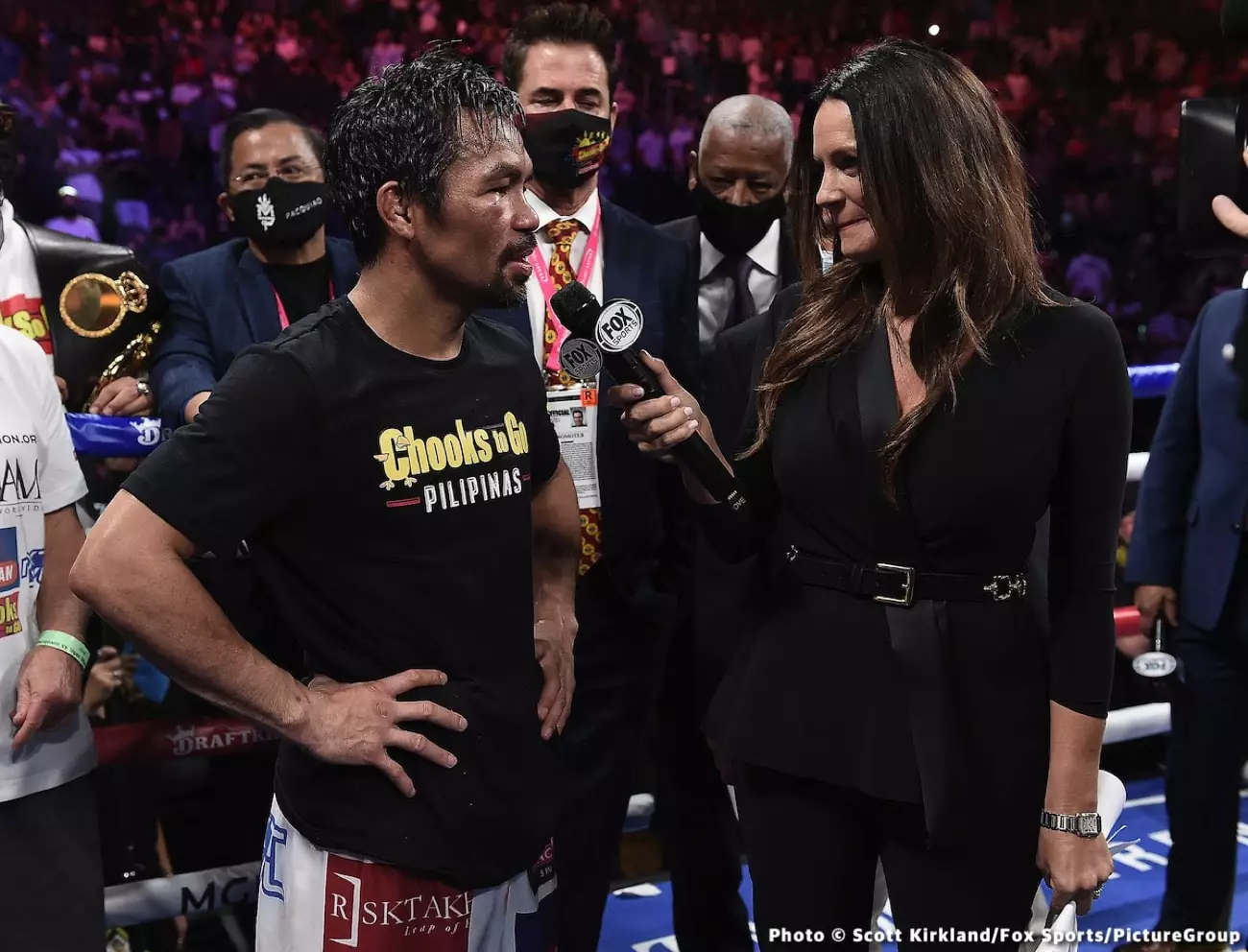In March 2010, the world of boxing was brimming with anticipation as Manny Pacquiao, arguably the sport’s biggest star, was set to clash with Joshua Clottey at the sprawling Cowboys Stadium in Texas. It was meant to be a riveting encounter that showcased two elite fighters—but instead, this event descended into a controversial spectacle that polarizes opinions even today. Pacquiao, the reigning WBO welterweight champion with a record of 50-3-2 (38 KOs), was at his peak, having built a legacy as one of the best pound-for-pound fighters. Clottey, a seasoned veteran with an impressive record of 35-3 (20 KOs), was seen as a formidable opponent, though less heralded in comparison to the Filipino icon.
This bout represented not just a fight in the ring, but a critical moment in the sport’s history. Fans were yearning for a true blockbuster showdown between Pacquiao and Floyd Mayweather, a fight that would remain out of reach due to contractual and promotional hurdles that would linger for years. As such, the expectation was palpable for Pacquiao vs. Clottey to serve as a thrilling diversion. However, in what was supposed to be a showcase of power and skills, the match became a dull affair.
The Unfolding Drama in the Ring
As the fight played out, it quickly became apparent that something was amiss. Though boxing is often a game of strategy that necessitates careful maneuvering, Clottey seemed to default to an unnervingly passive approach. From the outset, he rarely let his fists fly, deciding instead to be more of a defensive figure than a contender determined to conquer the ring. The judges’ scores told the story, with Pacquiao dominating the fight and winning decisively on scorecards of 120-108 and 119-109 across the board. It was an embarrassing shutout that raised the question: where was Clottey’s famed warrior spirit?
His lackluster performance incited speculation, with audiences hypothesizing that Clottey had perhaps thrown the match. However, such claims weren’t just baseless conspiracy theories. Years later, Clottey himself revealed a startling truth—he fought not to win, but rather to survive in the ring, and it was largely due to the malpractice of his management.
A Fighter’s Regret: The Revelation of Clottey
In a revealing interview, Clottey opened up about the underhanded dealings he encountered with his then-manager, Vinny Scolpino. The fighter disclosed that he was set to earn a lucrative payout for the match, but Scolpino had accepted a significantly less favorable arrangement on his behalf. This financial manipulation limited Clottey’s earnings to a measly $3 from every pay-per-view purchase—a bitter pill for a fighter who had dedicated his life to the sport. His allegations painted a stark picture of a manager profiting at the expense of his own fighter’s success.
“Was I fighting for free?” Clottey mused during the interview. Indeed, the profound disappointment echoed in his words resonated throughout the boxing community. The tragedy of the situation is that Clottey, a fighter known for his tenacity and skill, was caught in a web of exploitation, potentially robbing the world of a display of athletic prowess that could have come forth had he been fairly compensated.
The Impact on Legacy and Perception
What remains particularly fascinating about this controversy is how it recontextualizes one of the sport’s significant fights. For many fans, the Pacquiao-Clottey showdown was a one-dimensional tale of a champion’s dominance over a lesser opponent. However, layering in Clottey’s revelations of management misconduct adds a tragic dimension to the entire event. The once straightforward narrative transforms into a cautionary tale about the complexities of boxing, where financial deals often dictate a fighter’s will to truly compete.
Moreover, this story speaks to the often-overlooked reality of many fighters who exist in the shadows of promotional machines—caught between the desire to perform and crippling managerial deals. It raises valid questions about accountability and the ethical responsibilities of management within professional sports.
Ultimately, this saga is a lesson in the importance of transparency and fairness not just in the arena but also behind the scenes. What might have transpired had Clottey been properly motivated and compensated is a mystery forever shrouded in doubts, yet the ramifications of his choices ripple through the fabric of boxing history. As fans look back on this controversial bout, it serves as a reminder that every fight carries with it not just the weight of physical struggle, but also the unseen battles that shape the experience.


Leave a Reply